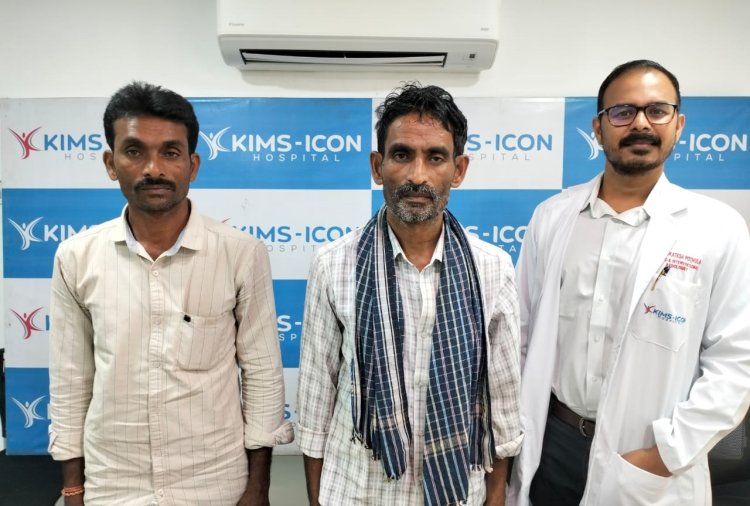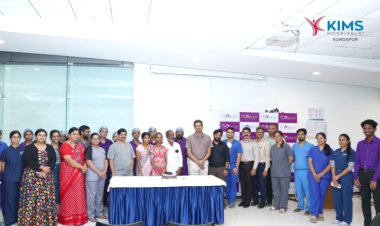Endovascular Coiling for a patient with a Brain Aneurysm

Visakhapatnam, 10th Jan 2023: The human brain is a very sensitive part. The vascular problems of the brain are the most complex ones. If the symptoms associated with these are ignored, they can be fatal. It is very important to go to the right doctors at the right time and get immediate treatment. A 46-year-old man from Visakhapatnam was recently admitted to KIMS-Icon Hospital after he complained of severe headache, vomiting and loss of consciousness. Dr Venkatesh Pothula, a neuro-interventional radiologist at KIMS Icon Hospital, who performed advanced surgery on him explained the case and the treatment given to him.
"When we took a CT scan, there was internal bleeding in the brain (subarachnoid hemorrhage). He suffered severe headache probably due to rupture of bulged part of artery (aneurysm). Then he underwent digital subtraction angiography (DSA) of brain, and it was found that the left middle cerebral artery (MCA) bifurcation aneurysm had ruptured. Such cases should be treated as soon as possible.
As an emergency, the patient was immediately taken to "aneurysm coiling". This is called endovascular coiling. A brain aneurysm is a localised, blood-filled balloon-like bulge in the wall of a blood vessel of the brain, which has the risk of rupturing and leading to bleeding in or around the brain. A ruptured brain aneurysm needs to be treated as early as possible. 10-15% of these patients die before they are admitted to the hospital. More than half of deaths occur within the first 30 days of the rupture of arteries. It becomes technically very challenging to coil the aneurysm, especially in a case like this, where there is a small MCA bifurcation aneurysm.
Usually, in traditional treatment method for brain aneurysms, the skull is opened and the aneurysm is clipped. The state-of-the-art treatment procedure performed on this patient involves coiling to the brain aneurysm through the thigh artery. So there is no hole or incision on the head. This endovascular treatment has less complication rate, morbidity and mortality. Post-surgery, the patient can recover very quickly," he said. Consultant neurosurgeon Dr R. Omkareshwar, anaesthetist Dr Sujith and others helped in this surgery.

 Disclaimer: Welthi.com does not guarantee any specific results as a result of the procedures mentioned here, and the results may vary from person to person.
Disclaimer: Welthi.com does not guarantee any specific results as a result of the procedures mentioned here, and the results may vary from person to person.









